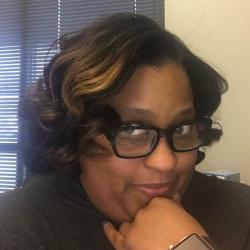Featured
The Presidential Debates: Race Matters
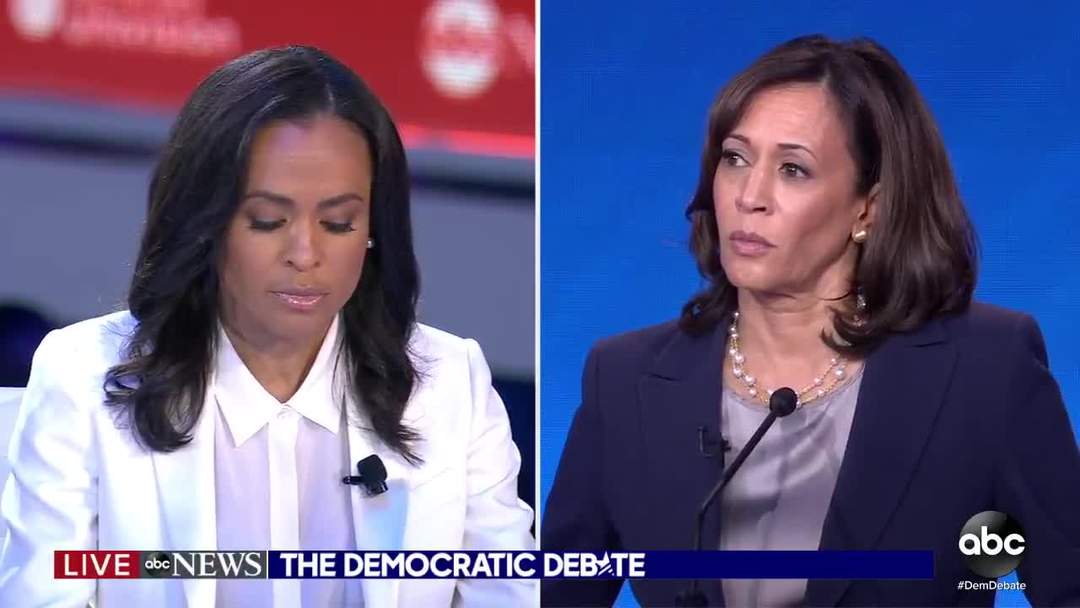
The entire presidential debate schedule from today to Election Day on November 3, 2020 is set. Three Democratic presidential debates down, nine to go. After that, we have four more during the general election. It is a lot but think of them as opportunities to gather more and more voting information to share with family, friends and communities on social media.
The next and fourth debate stage in Ohio is the largest with 12 candidates on Tuesday, Oct 15 at 8 p.m. ET. Congresswoman Tulsi Gabbard and businessman Tom Steyer join the 10 other candidates from the last debate.
The next set of moderators – CNN’s Anderson Cooper and Erin Burnett and New York Times’s Marc Lacey – should build on questions from Houston debate questioner, Linsey Davis.
Davis was the first Black woman who moderated part of a presidential debate in the 2020 election cycle. Her role as a debate moderator demonstrated the importance of journalists who reflect the diversity of the electorate.
Right away from Davis’s opening question on the Sept 12 stage, the ABC journalist asked about racism. To encourage thoughtful responses from candidates, she cited recent polls of Black Millennials that ranked race as their top concern.
DAVIS: Thanks, George [Stephanopoulos]. Since we’re here at an HBCU, I’d like to start with young black voters. Several recent polls indicate their number-one concern is racism. This campus, this state, and this nation are still raw from that racially motivated attack on Latinos in El Paso.
Now, we know that the racial divide started long before President
Trump and President Obama, but each of you on this stage has said that
President Trump has made that divide worse. Congressman O’Rourke, coming to you
first, why are you the most qualified candidate to address this divide?
Davis received uplifting responses, but no answers. Any of the next debate moderators should ask follow-up questions about this top issue of young Black voters. How would you as president plan to bridge the racial divide? What is your role as president to unite the diversity of this country? Candidates should understand that these vital questions will not go away until everyone has answered them. Moderators should just plug in the latest event and ask an early question about what actions the next president would take to unite an increasingly diverse population.
Davis recognized the importance of race by starting and sticking with questions about race. She also did not just ask a generic first question about the subject, but she also directed specific questions to individual candidates.
To New Jersey Senator Cory Booker, she asked:
DAVIS: Senator Booker, you have said, quote, “The real question isn’t who is or isn’t a racist. It’s who is going to do something about it.” Senator, what do you plan to do about it?
Both South Bend Mayor Pete Buttegieg and California Senator Kamala Harris also received specific questions:
DAVIS: Mayor Buttigieg, you’ve been struggling with issues around race in your own community. You’ve also said that anyone who votes to re-elect President Trump is, at best, looking the other way on racism. Does that sort of talk alienate voters and potentially deepen divisions in our country?
DAVIS: Also a concern for people of color is criminal justice reform.
Senator Harris, you released your plan for that just this week. And it does contradict some of your prior positions. Among them, you used to oppose the legalization of marijuana; now you don’t. You used to oppose outside investigations of police shootings; now you don’t. You’ve said that you changed on these and other things because you were, quote, “swimming against the current, and thankfully the currents have changed.”
But when you had the power, why didn’t you try to effect change
then?
In many cases, listeners learned more about the candidate from the question than the answer. Buttigieg faces challenges in South Bend’s black community. Senator Harris released a criminal justice reform plan.
A common theme in Davis’s questions is the voter. She allowed voters’ concerns to inspire questions. She avoided taking her cues from criticism on Fox News as some moderators have done.
Let’s take to social media to make sure that Davis is not the last Black woman moderator. Our voices are way too important for Linsey Davis to be the only one among 12 Democratic presidential debates and four presidential ones.
Holli L. Holliday is president of Sisters Lead Sisters Vote, a nonprofit c4 organization for, by and of black women.

-
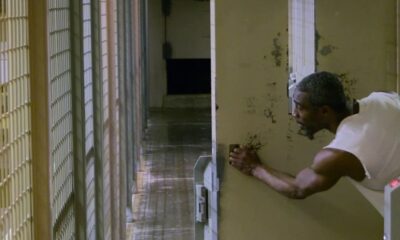
 Featured12 months ago
Featured12 months agoArkansas Sheriff Who Approved Netflix Series Says He Stayed ‘In His Lane’
-
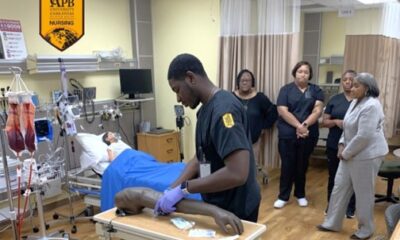
 HBCUS12 months ago
HBCUS12 months agoSenator Boozman Delivers $15 Million to Construct New UAPB Nursing Building
-
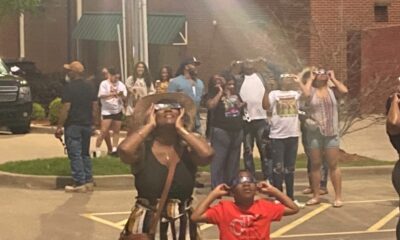
 News12 months ago
News12 months agoMillions In the Path of The Total Solar Eclipse Witnessed Highly Anticipated Celestial Display
-

 Featured9 months ago
Featured9 months agoCalifornia Is the First State to Create A Public Alert for Missing Black Youth
-

 Featured9 months ago
Featured9 months agoAfrican American Leaders Stay the Course Amid Calls for President Biden To Bow Out of Race
-

 Featured9 months ago
Featured9 months agoThe Debate Fallout Lands on Both Candidates

